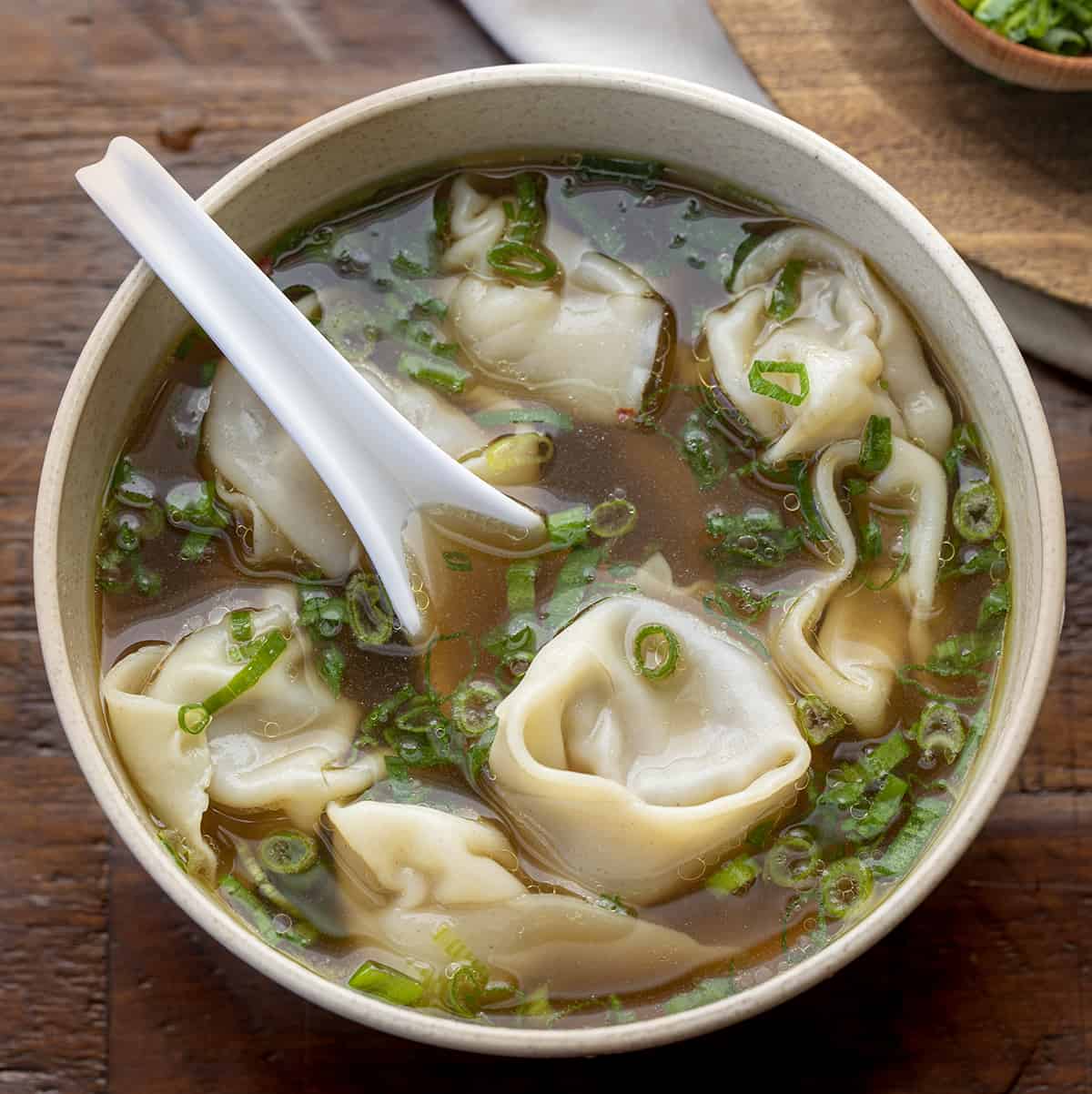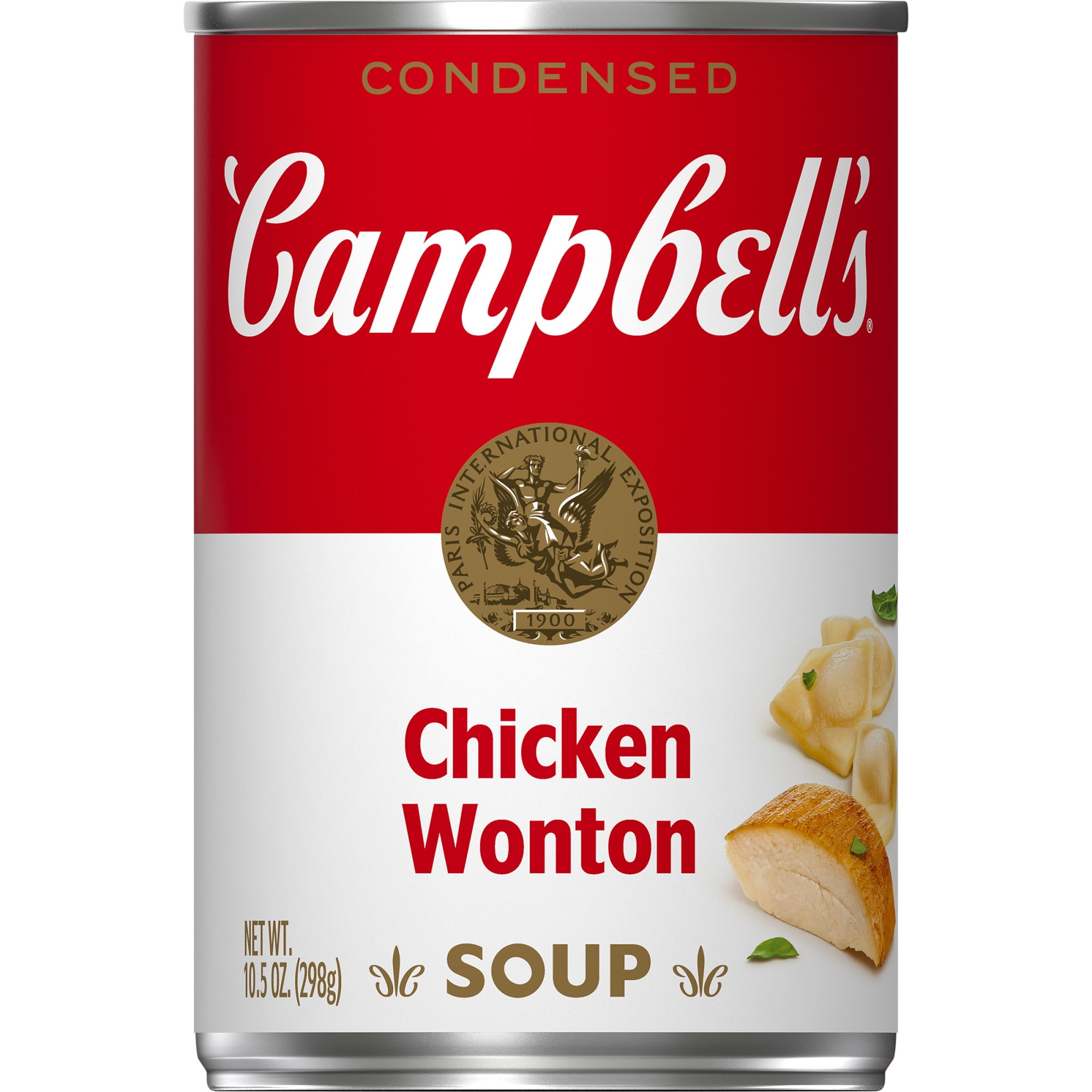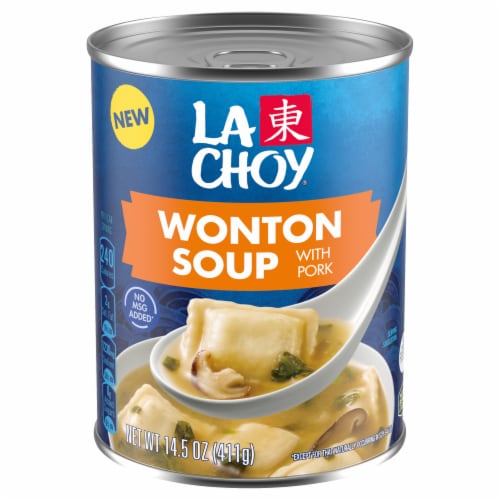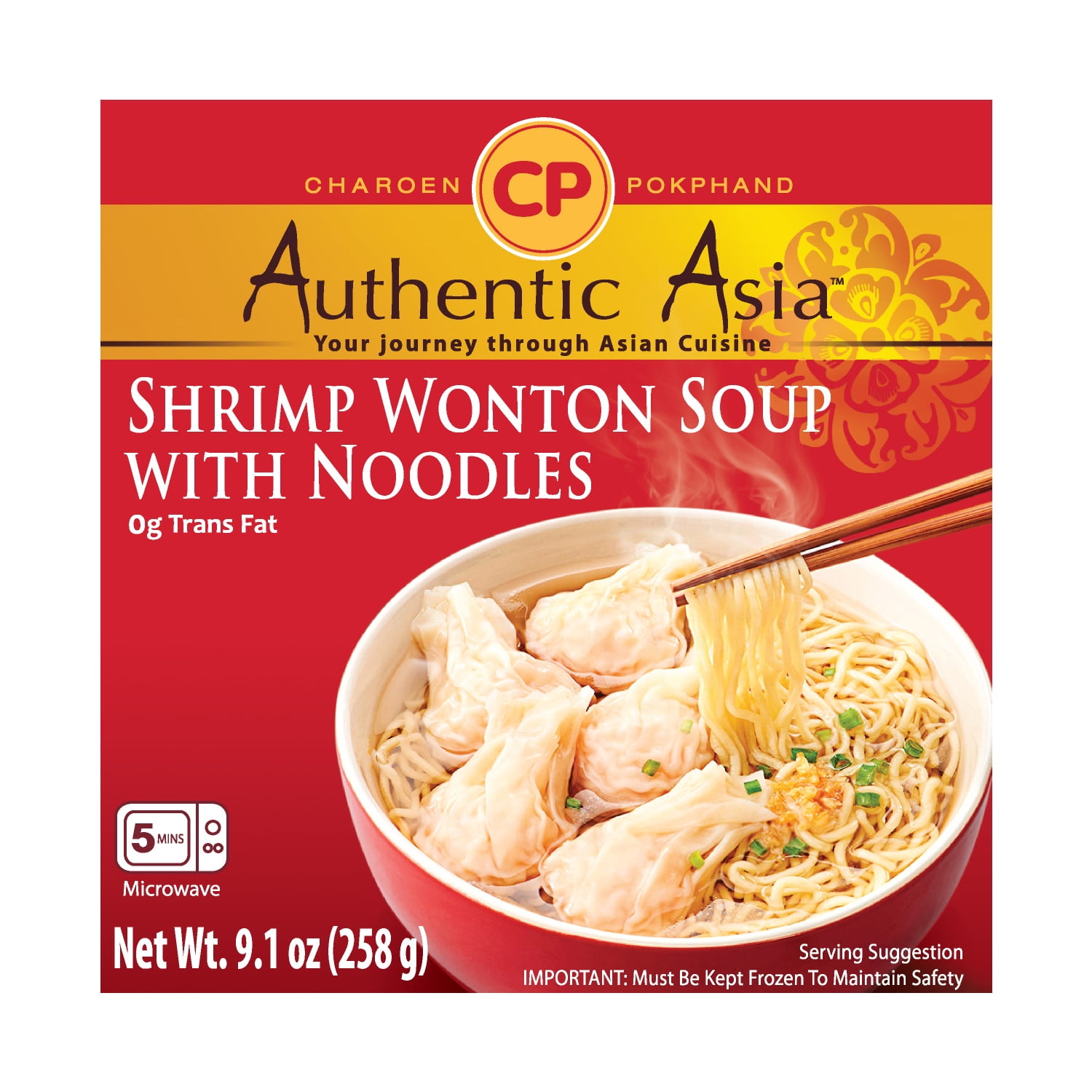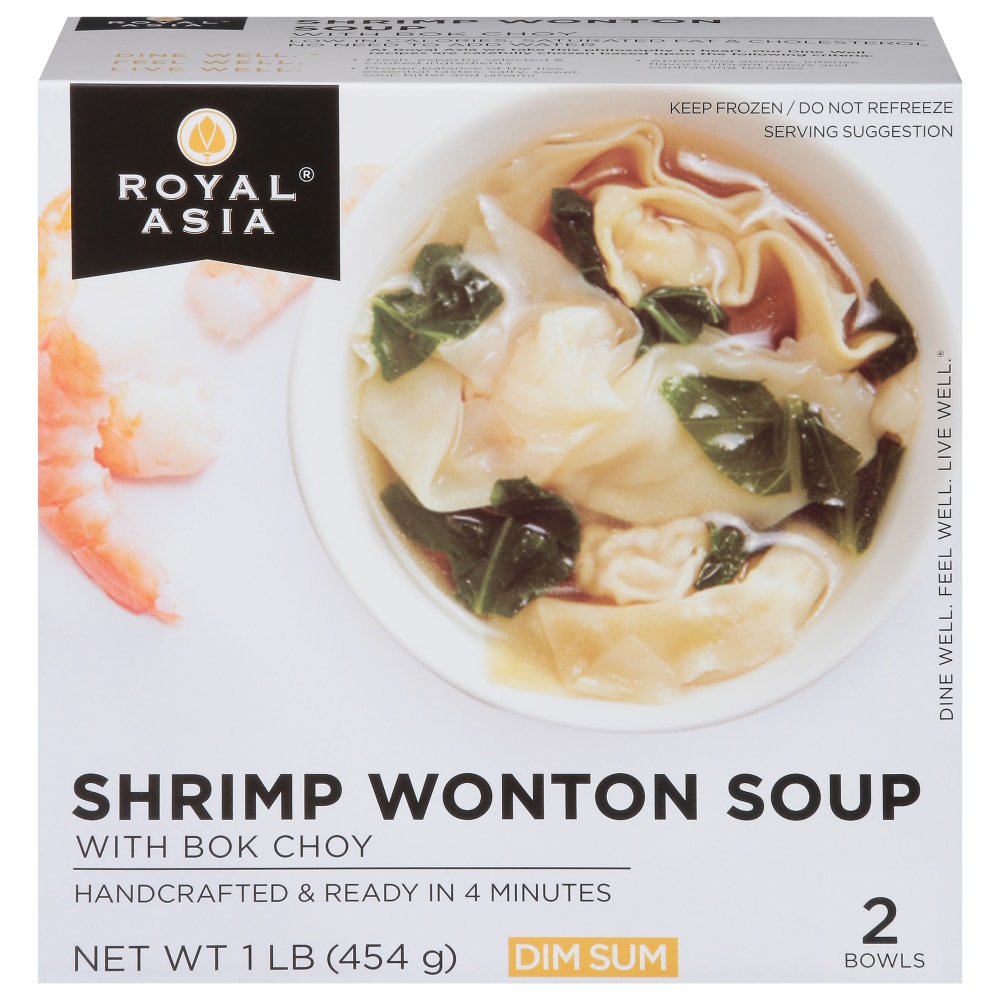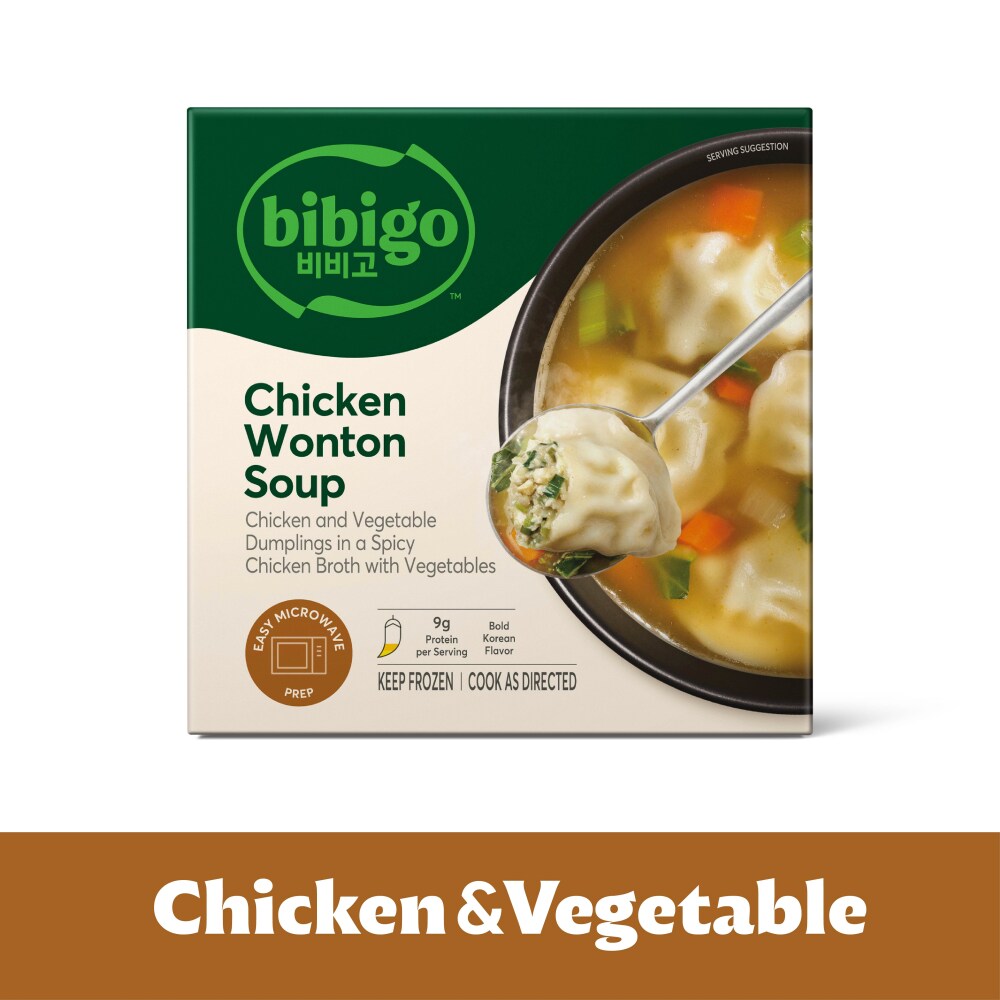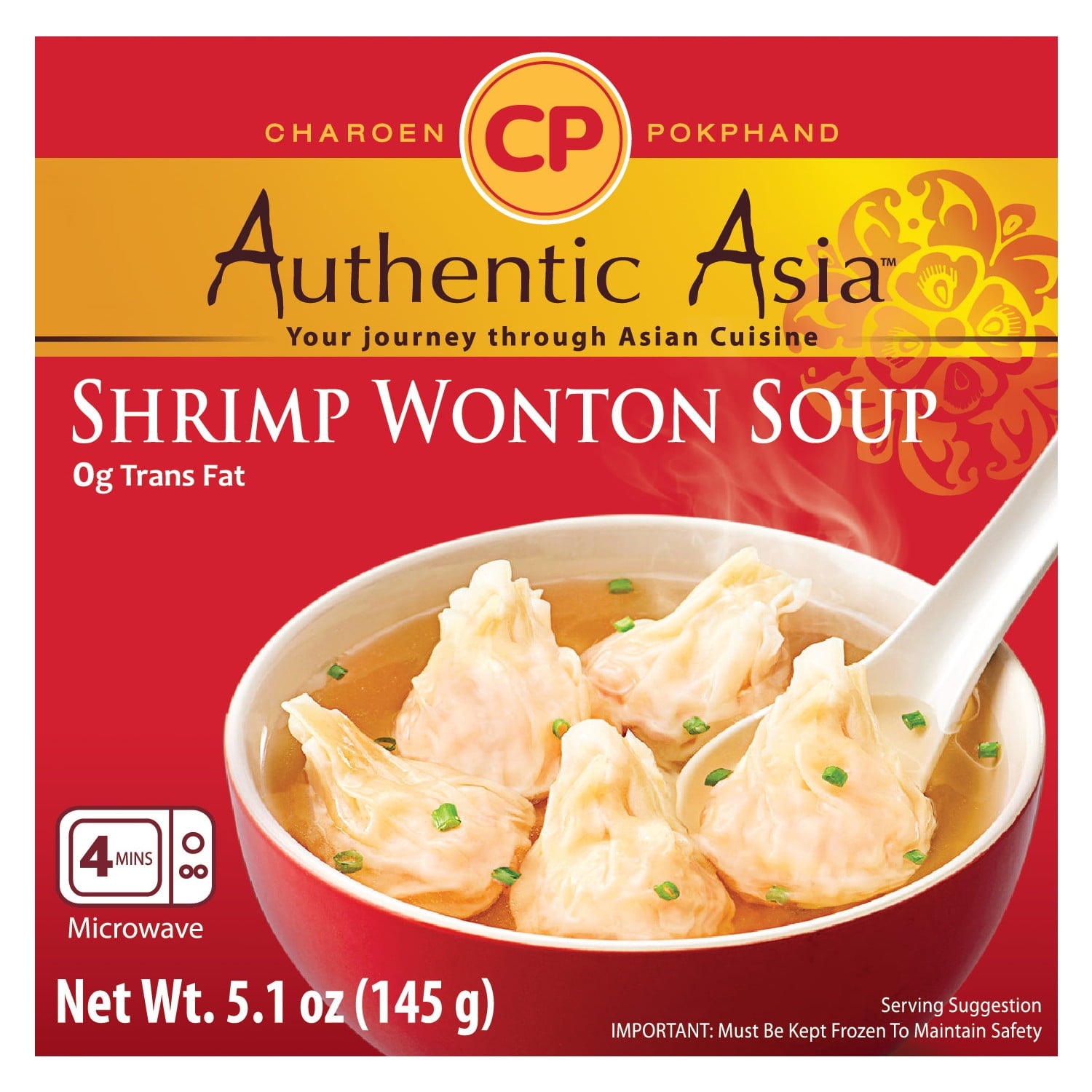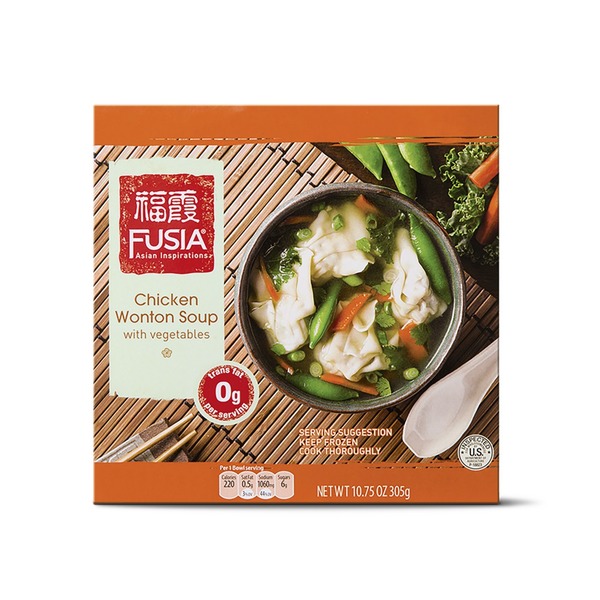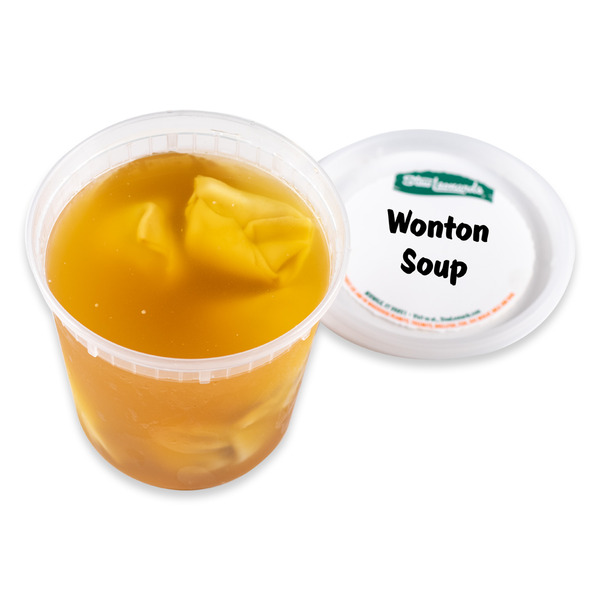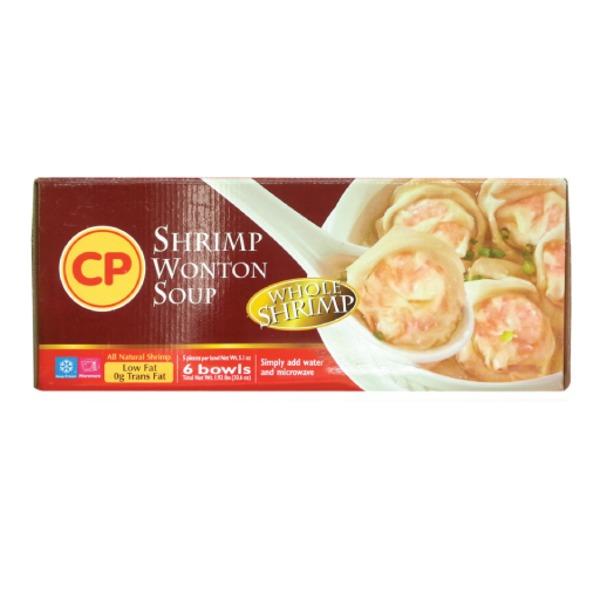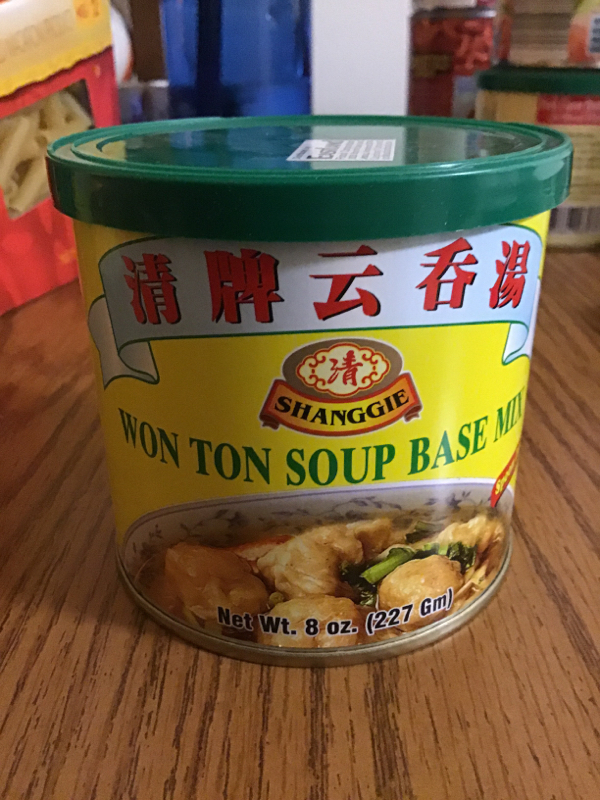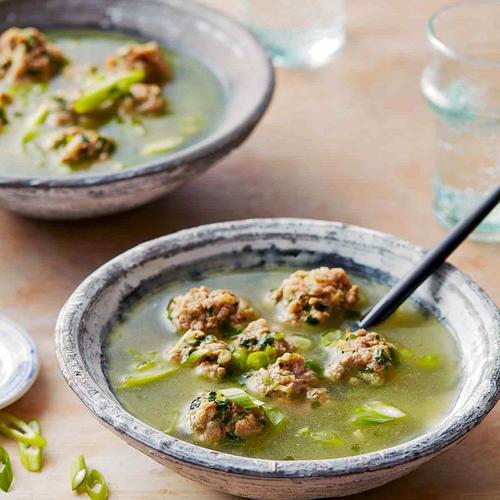Wonton Soup
Wonton Soup is a classic and warmly comforting dish in Chinese cuisine often enjoyed as a starter but is hearty enough to serve as a main course. Combining wholesome homemade dumplings, scrumptious fillings, and a soul-soothing broth, the soup offers an exquisite blend of flavors and textures.
The joy of Wonton soup lies in its versatility, the dumplings being filled with a number of varied ingredients from prawns to pork. An excellent choice for a homely dinner or healthy lunch, this heartwarming soup is a staple in every Chinese food lover's kitchen.
73%
CARBS
4%
FAT
23%
PROTEIN
Featured Articles
34 Wonton Soup Products
Campbell's Condensed Chicken Wonton Soup
La Choy Wonton Soup
CP Authentic Asia Shrimp Wonton Soup with Noodles
Royal Asia Shrimp Wonton Soup with Bok Choy
Bibigo Frozen Chicken Wonton Soup
Authentic Asia Shrimp Wonton Soup Meal
Fusia Asian Inspirations Chicken Wonton Soup with vegetables
Stew Leonard's Wonton Soup
Cp Shrimp Wanton Soup
Wonton Soup Base Mix
11 Recipes for Wonton Soup
Wonton Soup FAQ
What are wontons?
What are the main ingredients for wonton soup?
How do I make the wonton filling?
What is the best way to fold wontons?
What kind of broth should I use for wonton soup?
Can I make wonton soup ahead of time?
How do I prevent the wontons from sticking together?
Can I freeze wonton soup?
Expiration & Storage Tips
When does Wonton Soup expire?
Wonton Soup, whether homemade or store-bought, generally lasts in good quality for about 2-3 days in the refrigerator. Nevertheless, it can still be edible beyond this time, up to one week, but the quality and taste may start to diminish. The freshness of ingredients used can affect these timelines. If you choose to freeze it, the soup can last up to six months while withholding its flavor and quality.
How do you tell if Wonton Soup is bad?
If your soup is spoiled, there will be a few tell-tale signs. The first is a change in the smell. If it smells sour, off, or just unappetizing, it's better to be safe and discard it. The second is the look. Check your soup. If it has changed color or if there are any signs of mold, it is definitely gone bad. Lastly, if leftover soup has been improperly stored and left out for too long, it's generally better to toss it out to avoid food poisoning.
Tips for storing Wonton Soup to extend shelf life
• Always store your leftover soup in refrigerator as soon as possible. Allowing it to sit out at room temperature for extended periods can lead to bacterial growth, reducing its shelf life and increasing the risk of food poisoning.
• Use airtight containers for storage. This helps keep out bacteria and other contaminants.
• If you plan on freezing your soup, consider portioning it into individual servings. This makes it easier to thaw only what you need, minimizing waste.
• Adding a dash of salt when storing can help preserve the soup for longer. Salt is a natural preserver which might slightly extend the soup's shelf life.
Health Info
Macros
2g
CARBS
11g
FAT
22g
PROTEIN
Allowed on these diets
LACTOSE FREE
Contains these allergens
SOYBEANS
WHEAT

